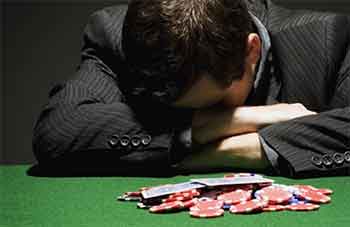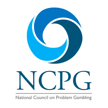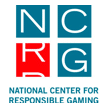Contents
Online Poker America is committed to educating players about the importance of safe and responsible gambling and seeing it as entertainment rather than a means to make money.
Under-age Gambling
You must be at least 18 years old, or the minimum gambling age for the state and country you’re playing from. Age restrictions for each state is different so please make sure to check for the correct age for your state. You can do this by visiting our poker state laws page.
Signs of Problem Gambling

Firstly, what is problem gambling/compulsive gambling/gambling addiction? In it’s simplest form, it is a compulsive urge to continue gambling regardless of the negative consequences. Problem gambling is often defined by whether harm is experienced by the gambler or others, rather than by the gambler’s behavior. Severe problem gambling may be diagnosed as clinical pathological gambling if the gambler meets certain criteria. Pathological gambling is a common disorder that is associated with both social and family costs.
Although we try our best to provide you with all the relevant information about safe and responsible gambling, it comes down to self assessment to realize whether or not you have full control over this form of entertainment.
To recognize whether or not you have a gambling problem, ask yourself these questions:
- Is your mind preoccupied with thoughts of gambling even when you’re not gambling, ie at school/work/doing other activities?
- Do you gamble in hope to solve financial difficulties?
- Do you chase losses?
- After winning, do you think you should continue playing and win even more?
- Are you gambling outside your means?
- Does gambling cause you to lose sleep?
- Have you ever lied about your gambling habits when asked by family and friends?
If you answered “Yes” to any of the above questions, then you may have a gambling problem.
How to control your gambling without professional help
Recognizing you have a gambling problem on your own is a good indicator that the situation is still controllable by yourself. Try the following things to get back on top of your gambling:
- Be honest to yourself. You’ve started this already by recognizing you have a gambling problem. So you’re off to a good start. But there’s more you can do. Don’t be afraid to talk to your friends and family about it as often they’ll give you encouragement and even suggestions on how to cut back on gambling.
- Make notes of how much, how often, when and who you gamble with. Like the above, this is all about being honest with yourself and helping to realize if maybe a certain someone is encouraging you to gamble, or a certain time of day or place makes it easy for you to gamble.
- Limit your playtime. After you’ve made a record of how long you play, it’s time to reduce that amount by setting yourself limits and sticking to it. Get it down to a point where it no longer hinders you from doing other activities in your life such as work/school, spending time with friends and family etc.
- Manage your money. Again, after noting how much you spend on gambling, it’s time to control it. Set a weekly amount that doesn’t cause you any financial strain.
- Keep yourself busy. Instead of spending time gambling, spend time doing other activities. Do other things you enjoy, try new things, even ask your friends and family to help keep you busy.
Seeking Professional help:
If you think your gambling problems are more severe, or have tried the above self help methods to no success, then maybe it’s time to seek professional help.
The good news is, there are lots of organizations to help you.
Gambling help organizations:




